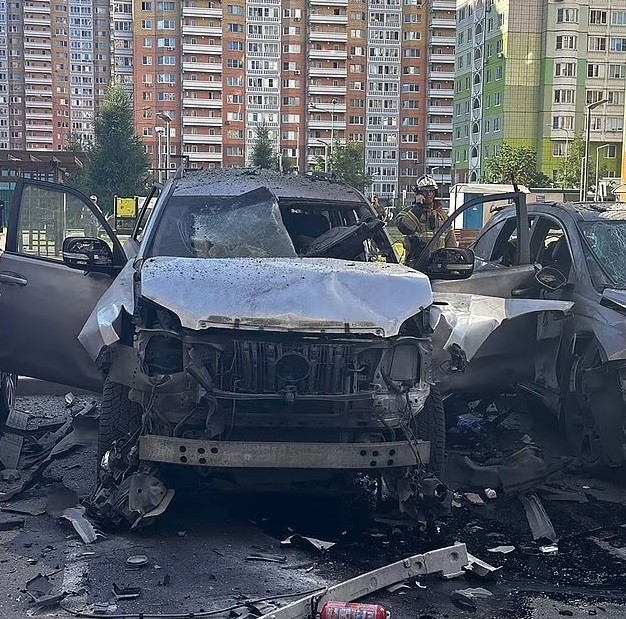24/07/2024
24/07/2024

MOSCOW, Russia, July 24: A senior Russian military officer, Colonel Andrei Torgashov, has sustained severe injuries following a car bombing in Moscow. The explosion occurred on Sinyavinskaya Street in northern Moscow as Torgashov, 50, and his wife Maya entered their Toyota Land Cruiser Prado. The incident is suspected to be an assassination attempt.
The blast resulted in the amputation of both of Torgashov's legs, and he is reported to be in a "grave" condition after emergency surgery, according to Tsargrad media. His wife also suffered facial lacerations but her injuries are not life-threatening. The explosion, which took place near a children's playground, left debris including engine parts and exhaust fumes scattered across the ground.
A passerby who witnessed the explosion provided first aid to the injured couple before they were transported to the hospital by ambulance. The witness described the aftermath, saying, "The explosion was very strong. The man's feet were torn off, burned; he was lying all charred." The witness also suggested that a device might have been planted in the car.
The incident is suspected to be linked to the ongoing conflict in Ukraine. Torgashov, a colonel in the Russian GRU military intelligence, serves as the deputy head of the 89th Satellite Communications Centre, a highly secretive unit integral to Russia’s Strategic Rocket Forces. This center plays a critical role in managing secure communications for missile troops and has connections to Russia's nuclear capabilities and overall military operations.
Russian law enforcement has classified the explosion as the "detonation of an object installed in the car." Police Major-General Irina Volk confirmed that investigations are underway to determine the circumstances surrounding the attack and to identify those responsible.
This attack follows recent reports of Ukrainian resistance fighters poisoning watermelons, leading to the deaths of at least 12 Russian soldiers and hospitalization of 30 others in an occupied city.


